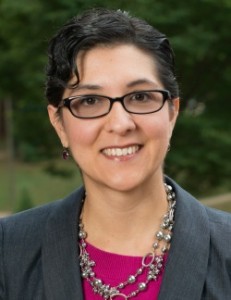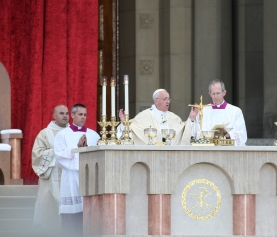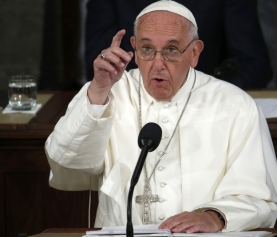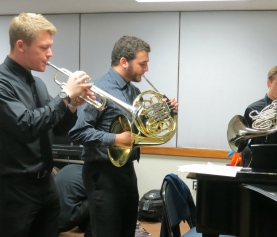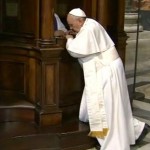
Melissa Moschella: Fidelity Is the Perfection of Freedom
In my last post, I reflected on Pope Francis’s exhortation to seek freedom of heart and to reject the false freedom of following wherever our emotions lead us. I presented the story of Carol Riddell and John Partilla as an example of how this false freedom is disastrous for marriage. Today I present the example of Kim and Krickitt Carpenter to show how a free heart — a heart that seeks what is truly good and remains faithful to commitments even in the midst of difficulties — anchors marital fidelity and happiness.
Those who have seen the movie “The Vow” may be familiar with the Carpenters’ story, but the movie doesn’t do it justice (the book is much better). Ten weeks after their wedding and less than two years after they met, Kim and Krickitt were in a car accident, which left Krickitt in a coma for four months and damaged her memory. While much of Krickitt’s memory returned, the two years prior to the accident — the time during which she and Kim had met, fallen in love and gotten married — were permanently erased. Social workers suggested that Kim should get a divorce, a move that would relieve him of responsibility for hundreds of thousands of dollars in medical bills. Kim, however, would not even consider it: “I had made my vows to Krickitt and there was no way I would ever have abandoned her.” While remaining faithful to Krickitt in these circumstances was difficult for Kim, Krickitt’s challenge was even greater: “When I came round from the coma, I had no memory of this whirlwind romance. My parents told me that I was married to this man, and they wouldn’t lie to me, so I knew that I must have loved him deeply. But I had no feelings for him at all…” Still, she said, “I had made my vows in front of my family and friends, to stay together, for good and for bad, in sickness and in health.” When Krickitt was well enough to return to her New Mexico home with Kim, to a place she had no memory of, with a man she was just beginning to get to know, things were rocky, to say the least. Yet Krickitt knew that Kim was her husband and was committed to being faithful to him, as this moving journal entry reveals: “Dear Lord, I really want to get back with Kim and get our new life going again. I am relying on you to restore all of my feelings for our relationship…. Please strengthen our marriage and make it even stronger than it was in the beginning.” At the advice of a counselor, Kim and Krickitt began going out on “dates” to build new memories together. And it helped. As Krickitt explains, “Slowly and steadily, we created those memories together, and everything else slowly started to fall into place. Slowly, over time, my love did grow for Kim deeply, but it was never a fluffy, gooey falling-in-love feeling again… My heart didn’t skip beats; I didn’t feel swept off my feet. I would love to have felt that, but it isn’t the truth — I made a choice to love him.’
Krickitt’s words — “I made a choice to love him” — are the secret to their success in rebuilding a happy marriage. And they are equally the secret to success in any marriage. Though less dramatic than what Kim and Krickitt went through, there are times in every marriage when the feeling of love is absent and what remains is simply the commitment, the deliberate choice, to love one’s spouse. The opposite approach to marriage, in which marriage is all about emotional satisfaction and lasts only as long as the feelings of love remain, is at the heart of the crisis of marriage in our culture. This approach, in turn, is based on another great lie of our culture: the false view that emotions are the deepest and truest indicators of our identity, and that true authenticity means following wherever our emotions lead. But emotions are often more likely to be a reflection of the amount of sleep we got last night than of the deepest core of our identity. It’s through reasoned judgment and reflection, not emotion, that we discover the bedrock values and commitments that form the core of our moral identity, and authenticity means being true to those values and commitments regardless of where the winds of emotion blow. Likewise true freedom is most perfectly manifested in standing by our commitments. Fidelity is the perfection of freedom, not the antithesis of it, even though sometimes it may seem burdensome. There must have been moments in which Kim and Krickitt felt their commitment as a burden and wished that they were free of it, but in remaining faithful to their vows, they showed the transcendence of human freedom over the limits of time and space, the vicissitudes of outward circumstances and even the inner pull of emotions, and in doing so achieved a deep love and happiness that would otherwise have been impossible. It’s this achievement that makes their story so inspirational to all who hear it.
— Melissa Moschella is an assistant professor at The Catholic University of America School of Philosophy.

